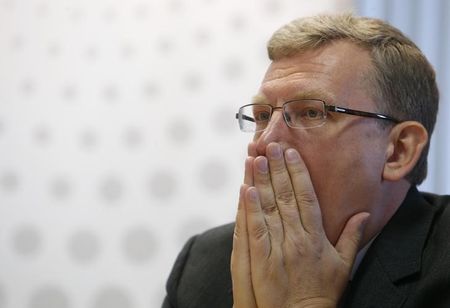By Lidia Kelly
MOSCOW (Reuters) - Former Finance Minister Alexei Kudrin warned President Vladimir Putin on Friday that "excessive conservatism" could restrict economic and political freedoms and said populist policies would weaken Russia.
Kudrin, a liberal economist and long-time Putin ally, also said it would take years to woo foreign investors back to Russia and restore trust in the rouble, hit by an economic downturn aggravated by Western sanctions over the Ukraine crisis.
Putin's popularity has soared in Russia since Moscow annexed the Crimea peninsula during the conflict in Ukraine, but Kudrin made clear he saw pitfalls ahead.
"If the president relies only on populist approaches, the country will continue to weaken, and will lose economic growth opportunities," Kudrin wrote in a commentary published by the Vedomosti business newspaper.
"It is necessary to avoid excessive conservatism, which limits individual and economic freedom, hinders development," wrote Kudrin, a darling of Western investors who quit as finance chief in September 2011 after criticising military spending.
Kudrin has more scope than most in Russia to express his views candidly in public after working with Putin for many years and long having his ear on economic policy matters.
He also said the Western sanctions, which limit access to foreign capital by some of Russia's largest companies, have done as much damage to the rouble as a fall in global oil prices.
The rouble is down nearly 30 percent against the dollar since the start of the year and energy is Russia's largest export commodity and an important source of income.
"Formal and informal sanctions have already seriously impacted the Russian economy," Kudrin wrote. "Bringing back the previous opportunities when it comes to foreign investment and trust in the rouble can be achieved only within seven to 10 years of growth of our economy."

He also criticised energy companies for asking for financial aid. Rosneft, the country's top oil producer, has asked for over $48 billion (30.62 billion pound) from one of the country's rainy day funds, the National Wealth Fund.b
(Editing by Timothy Heritage)